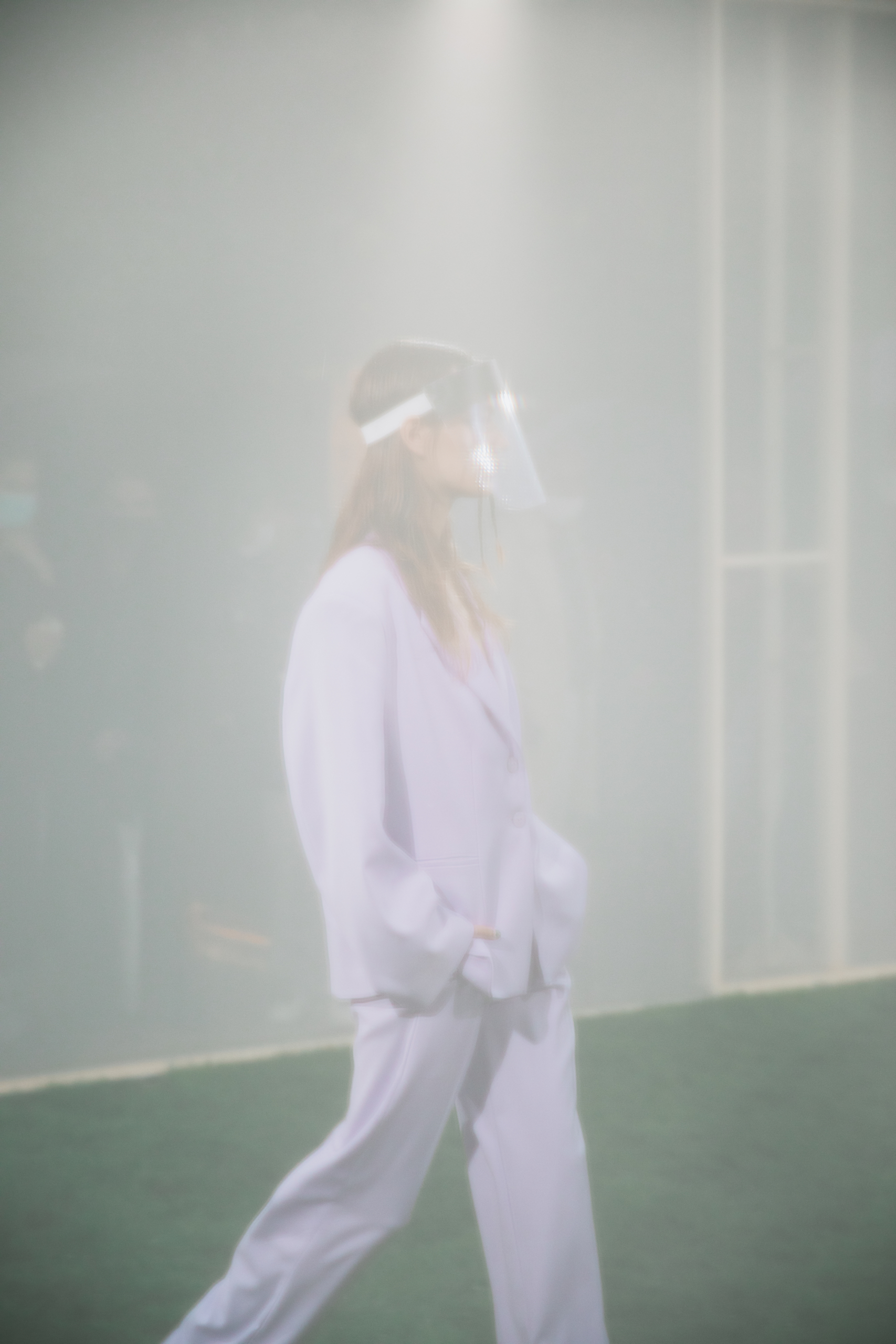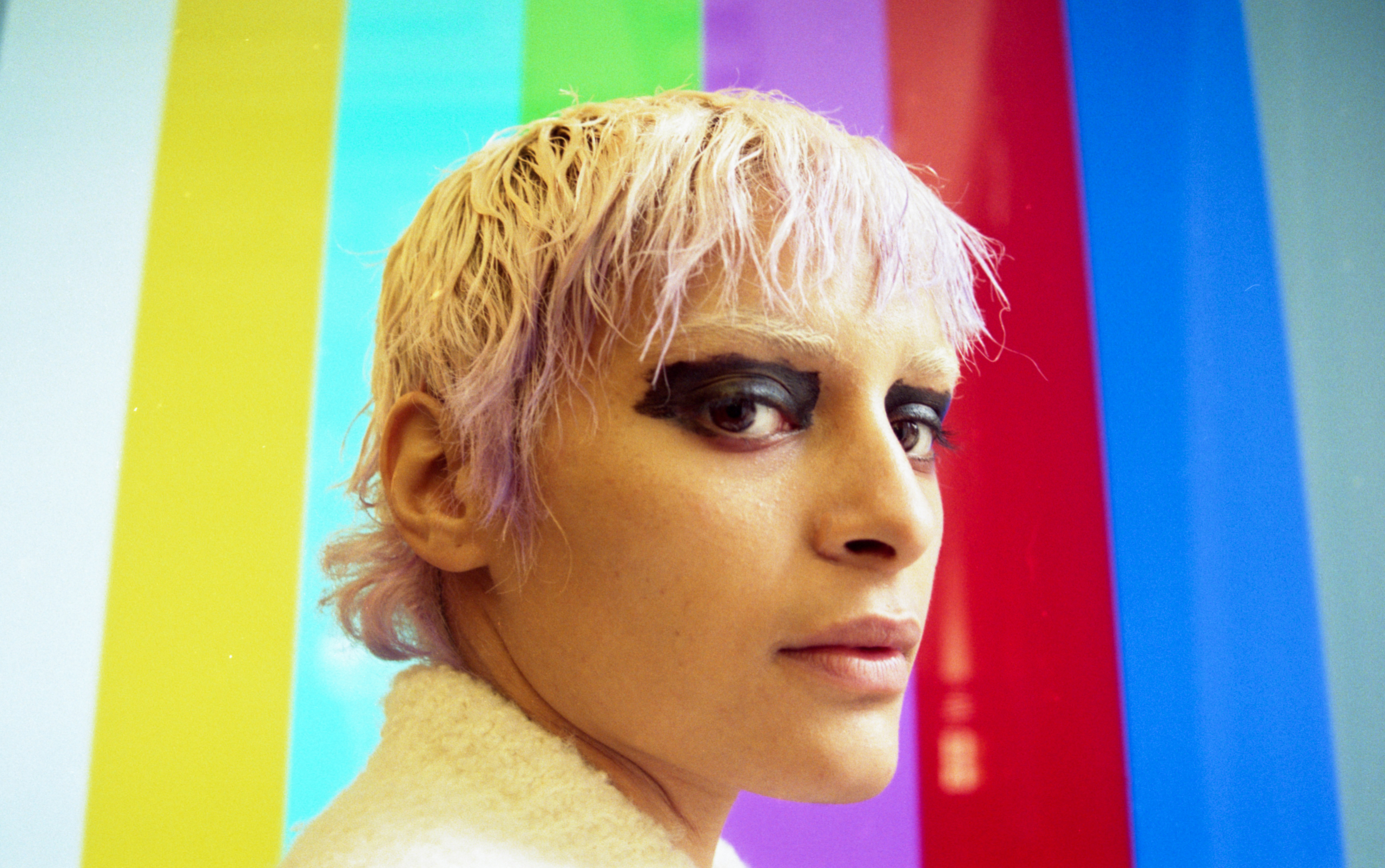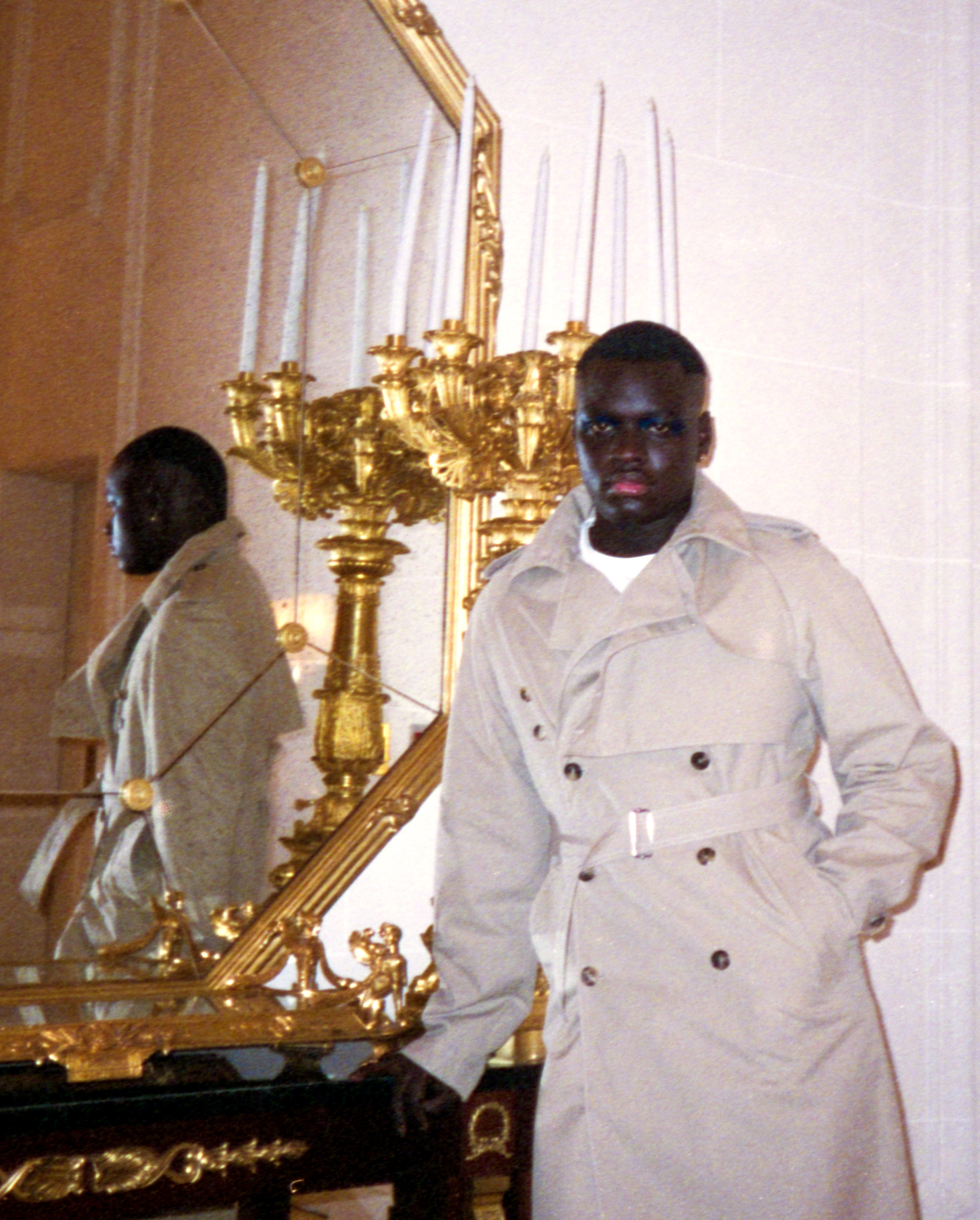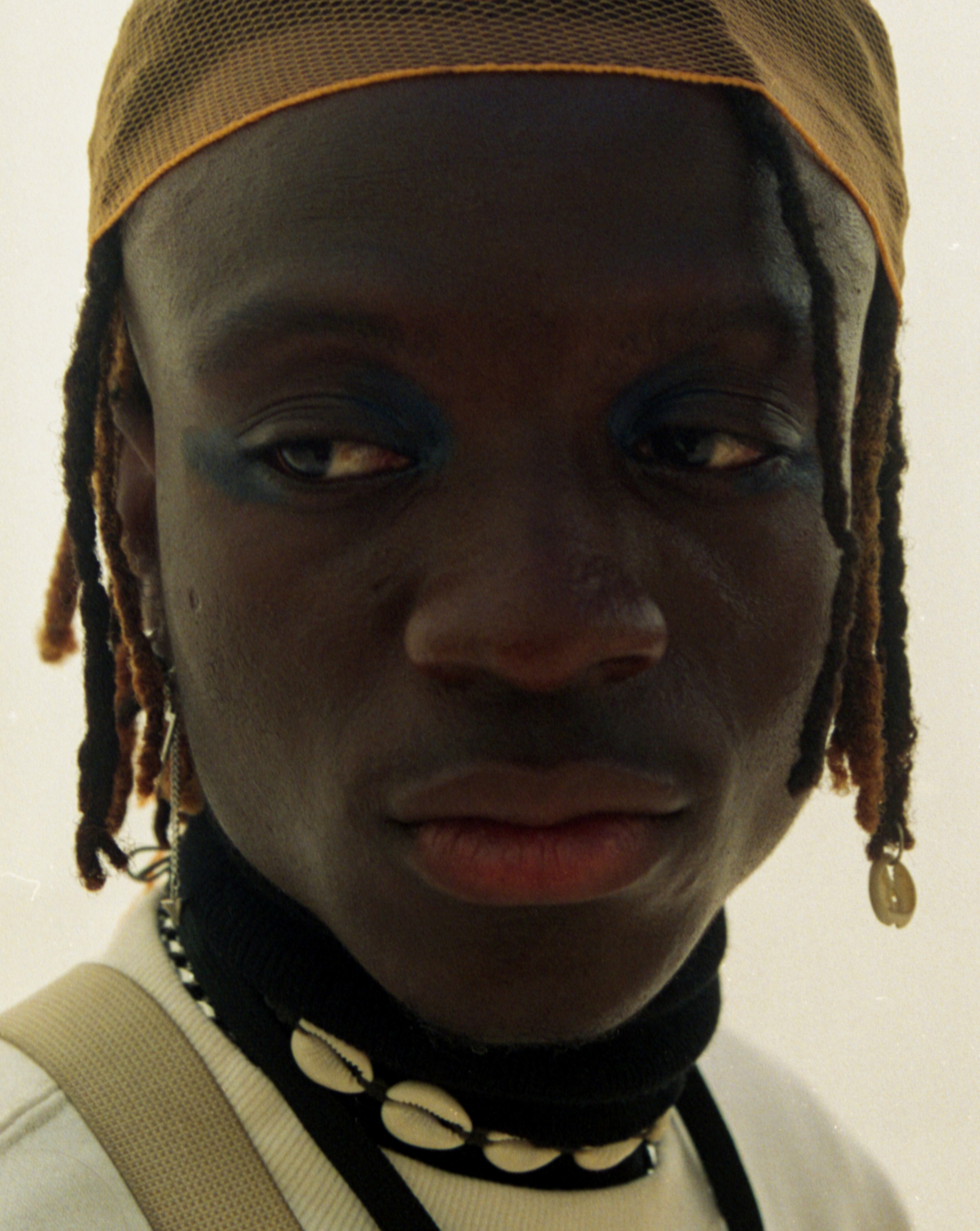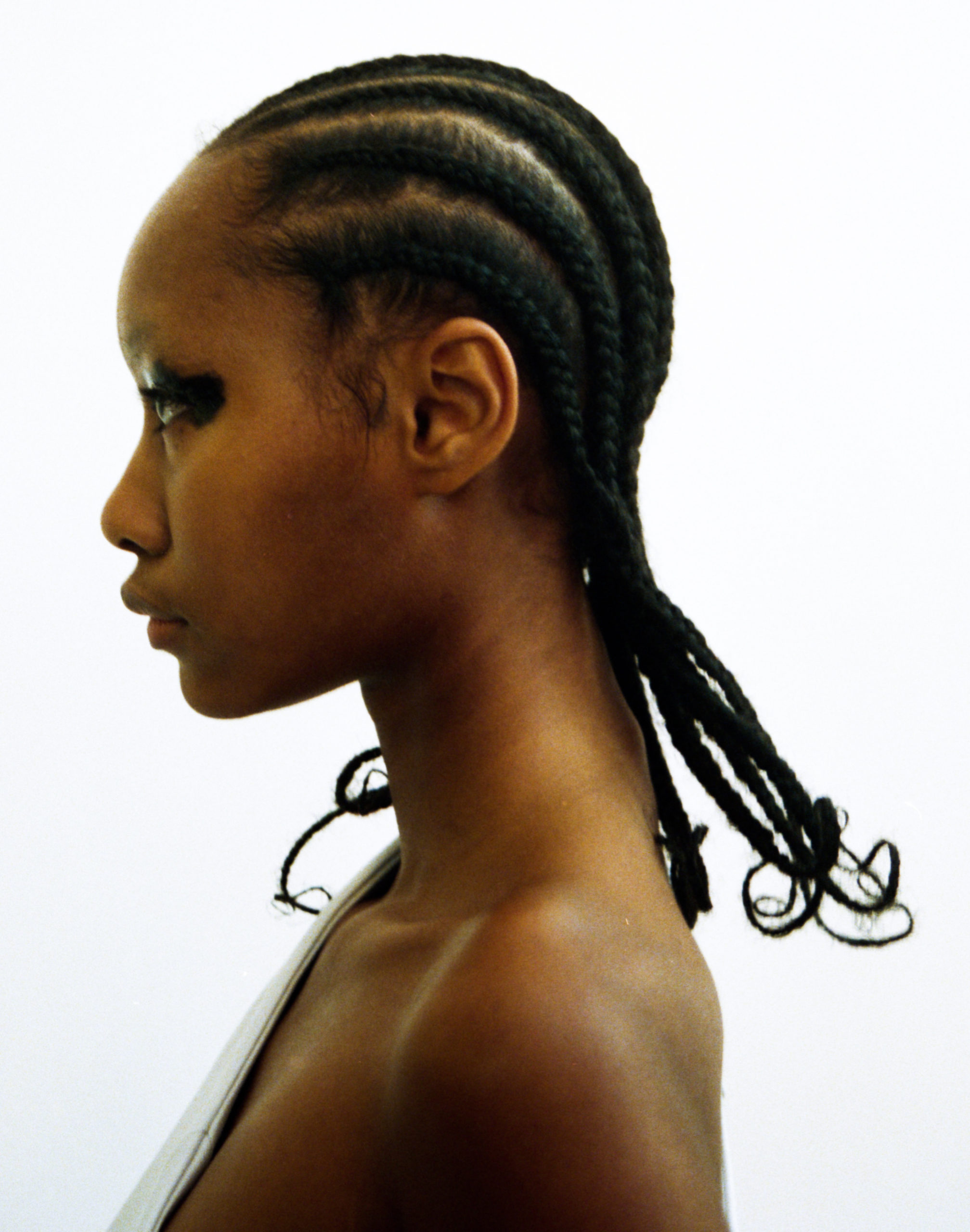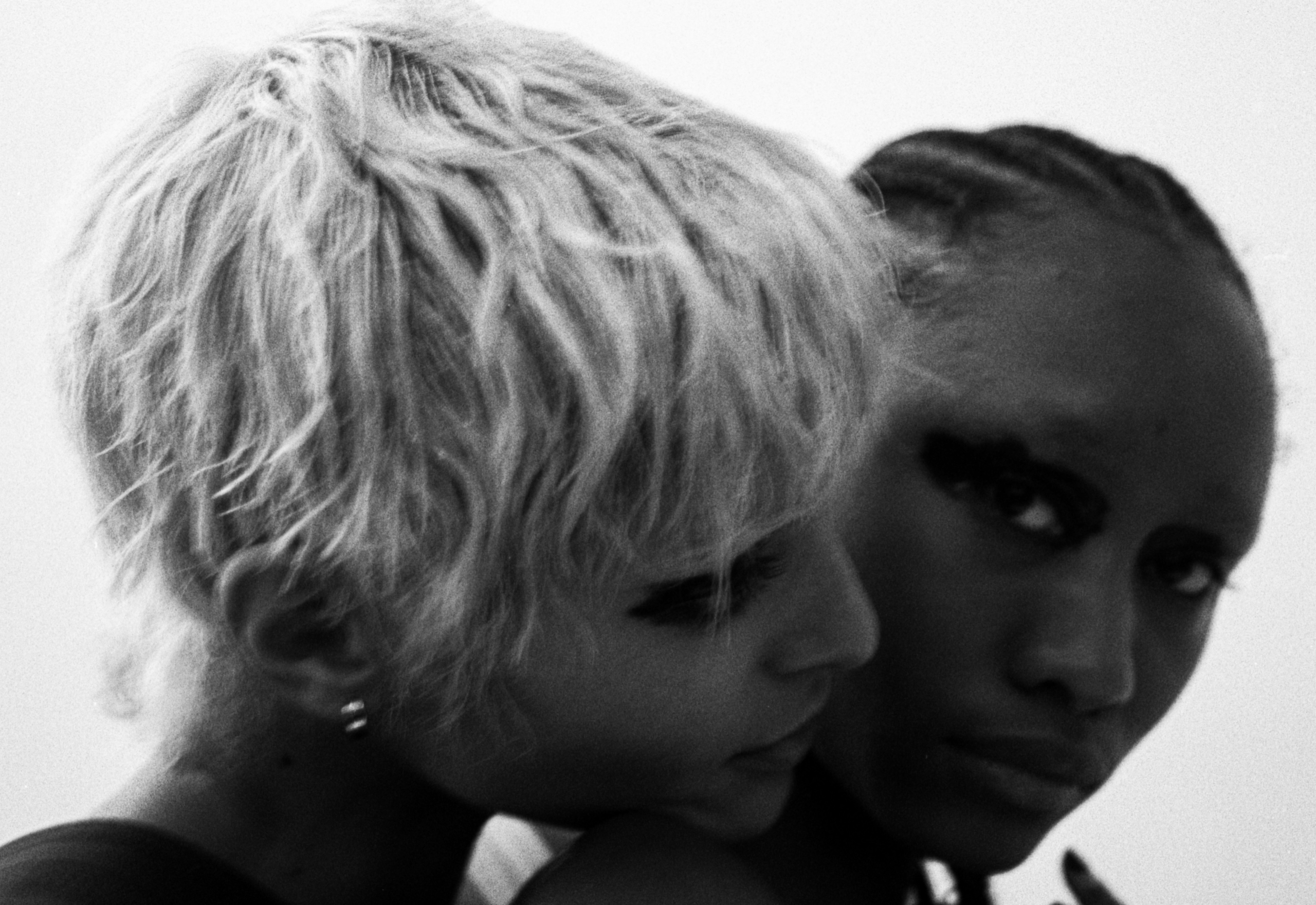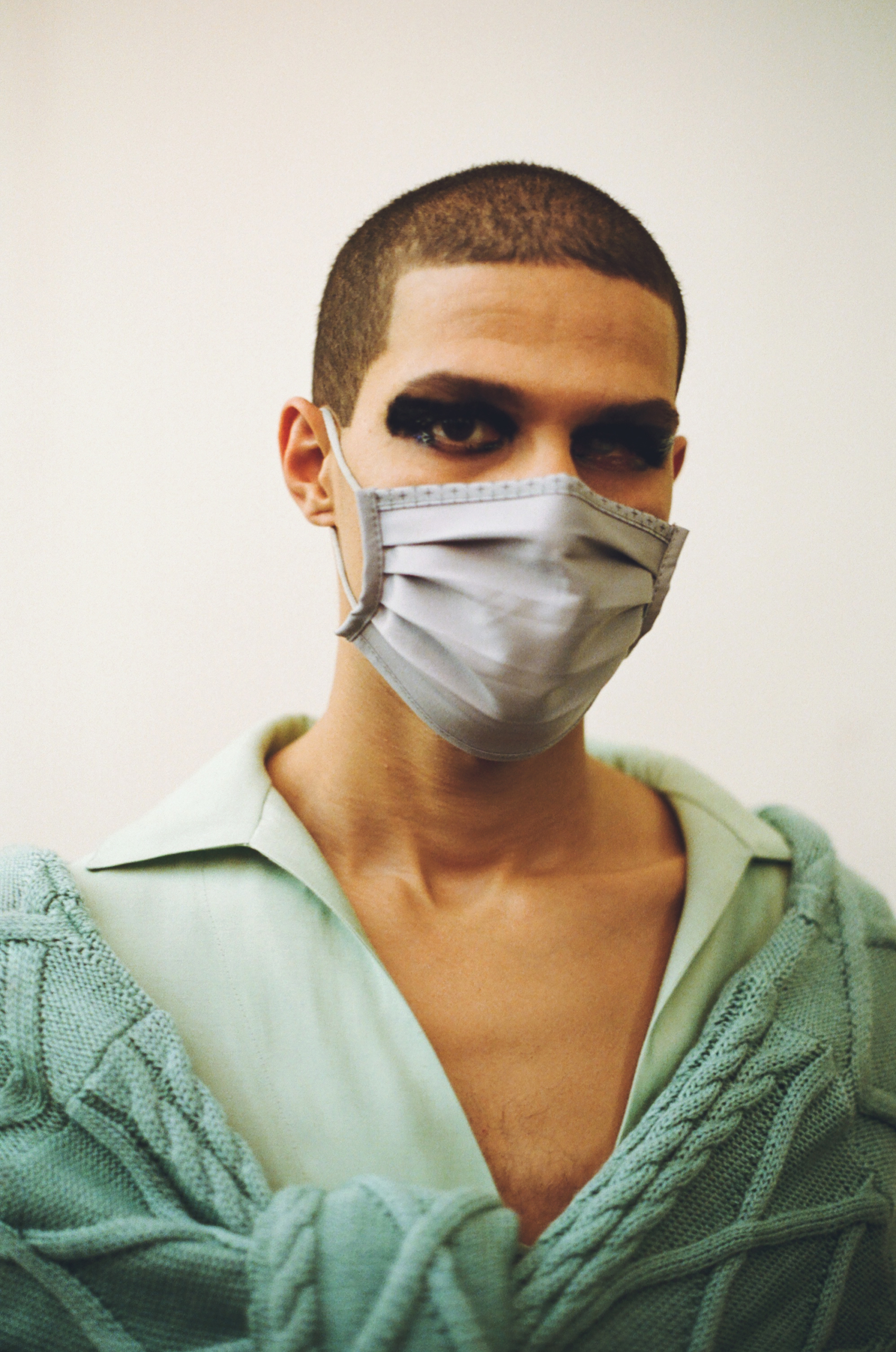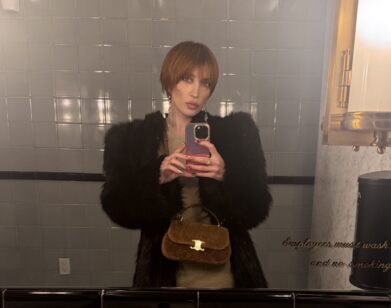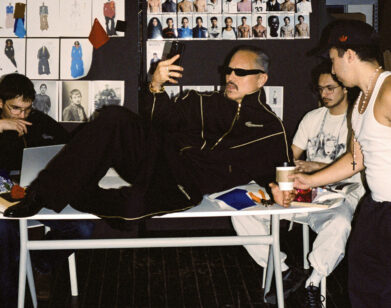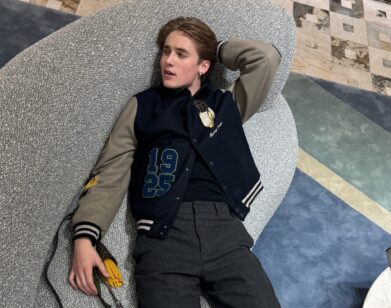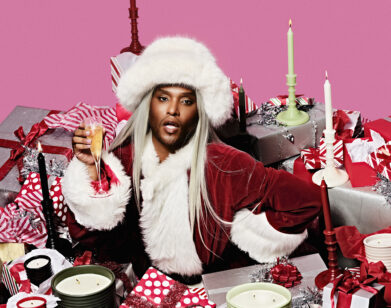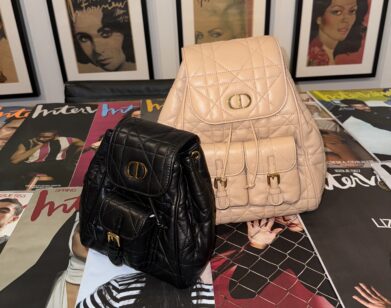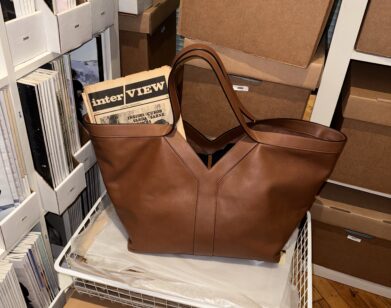fashion!
Reuben Selby and Umar ElBably Reshape the Form of Masculinity
What does a masculine man look like? It’s a conversation America has been flirting with, dating, and sleeping with for a few decades now. The evolution of masculinity is part of a long-time coming transformation in our culture—a movement toward a more expressive and fluid understanding of gender. Umar ElBably, the co-founder of Faculty, a new line of men’s beauty products, is “tired of the narrow band in which men have been forced to exist,” and Reuben Selby, the fashion multi-hyphenate (and Maisie Williams’s stylish boyfriend) are leading voices in the push for a more inclusive and glamorous future. Selby and ElBably lead brands built on the ideals of self-expression and comfort, both mentally and physically. The day after Selby’s Fashion Week debut at the Ritz in Paris, in which the models wore Faculty’s nail polish, he connected with ElBably over Zoom for an honest conversation about the inspirations behind his first collection (In)visible Barriers, their personal journeys exploring masculinity, and their shared hope for a more inclusive, less restrictive tomorrow. Let’s go, boys.
———
UMAR ELBABLY: Congrats on the show. Incredible. You’ve done many things in fashion, but this is the first thing you can truly call your own. You happen to have an incredible team around you. I’m very acquainted with them. I love the homies at PlayLab.
REUBEN SELBY: It’s crazy to have someone execute your ideas as well as they did. We literally did it in the space of four weeks. We sent them a message on Instagram, and to see it all happen so fast was crazy.
ELBABLY: What inspired you, man? Perhaps nothing.
SELBY: I think that the nature of being a creative person, you find inspiration everywhere. In terms of the brand as a whole, there are many inspirations and core values. The main core value is comfort—how individuals find comfort in what they wear. Whether they’re female or male, I think people have the same thought process in how they select a garment when it’s to do with comfort. We try and replicate the feeling of your favorite garment in your wardrobe. We want every single piece to have that feeling, and that plays into minimal waste and only having the items of clothing that you actually need.
In terms of inspiration, I take a lot from contemporary art. The color palette was purely from abstract art I’ve been consuming whilst in Paris exploring the galleries here. The set design is almost directly referencing Christo and Jeanne-Claude—that was a big influence. Mostly just trying to seek the truth in things and not trying to force opinions upon people. It’s really an extension of the individuals that we’re working with. I would never put somebody in something that they didn’t feel empowered or comfortable in. I think that you can really tell.
ELBABLY: For you to have such a conscious, refreshing take I think goes to show the level of authenticity and youth-ness of your approach. In many ways, a lot of the things that I was getting out of the show were tokens of expression. For me, comfort is relative. For me, painting my nails is comfortable. For every male-identifying male individual, it probably is not. But I think there’s a utopian world that I hope Faculty can contribute to alongside your collection that is whoever you are, you can achieve comfort and you can project it through as an individual. I like that every single model pretty much had their nails painted and also had a lot of makeup. It was expressive by nature. I know you wear makeup sometimes. How does it make you feel?
SELBY: Well, before we go into that I just want to backtrack on what you’re saying about, the average guy doesn’t necessarily feel comfortable painting their nails. I’m not sure if that’s necessarily true. I think the act of doing it should be comforting for everyone because, at the end of the day, it’s something like self-care. When you have to go out and that is part of your identity, that’s when it’s comfortable because men have to appear in a certain way. I think these things—when you’re left by yourself to be safe, explore, and experiment, I think it’s probably been in the thoughts of every male’s mind. Like, “Oh, what would it feel like to actually paint my nails or dye my hair or put makeup on?” I think everyone’s thought that, but they’ve never felt safe enough to try it. It’s more the societal pressures, but I think that everyone could potentially feel comfortable in doing so if they were allowed to.
ELBABLY: Exactly, that is the utopian world that I want to exist in, and providing that level of comfort is not only what Faculty contributes to but what you’re trying to contribute to with your line as well.
SELBY: Going back to your original question, I guess I do have to get to a stage where I’m not worried about what people are going to think. I don’t know what actually allows me to get to that stage. I think the willingness to express myself outweighs what people think of me and that gives me the confidence to try new things. It’s just one of those things where I don’t see it any other way.
ELBABLY: I grew up a misfit myself and so I was dying my hair when I was five years old. I grew up with three sisters so I was always playing with their makeup kits and just having fun. I was really into skate and punk culture, so I looked up to Fallout Boy and Three Day’s Grace and Slipknot and all these alternative individuals. For whatever reason, I resonated with them, and it was probably because they didn’t really stick to the status quo.
SELBY: My story’s a little bit different in that maybe I’ve only just started being freer in the way that I express myself through what I wear or how I present myself. I think that I always wanted to do that, but I’ve got three older brothers, my parents are strict Catholic, and from a white, working-class village in the middle of nowhere in the UK. So there really isn’t room for misfits or people that look different. Also, being half Asian as well in a completely white neighborhood… I’m half-Filipino, and I think that I probably did try and do as much as I could to make sure I didn’t stick out too much. I think it’s just taken me longer to feel comfortable showing how I truly feel on the inside. But now, I just feel confident enough to do whatever I want to. It does take time.
ELBABLY: It’s a process of self-discovery and everyone has their own path. I would say I’m mostly introverted. Your collection was for introverts, and maybe that’s why it resonated with me. Do you consider yourself an introvert?
SELBY: Yes. I’m a huge, huge introvert.
ELBABLY: There’s so much tension in going down this path of being an introvert. What are your thoughts on that?
SELBY: We live in a world that is incredibly loud and sometimes the loudest voice wins. It’s leading to a world that isn’t very stable because people aren’t taking the time to be more introspective. I think the nature of being an introvert, you find it really hard to speak your mind, and sometimes even to articulate yourself. There are so many people who get shut down because they don’t know how to sell themselves. Especially being an artist or a creative, you have to be able to talk about your work and convince people to work with you. That’s a really difficult thing to do. I’ve had to work so hard at doing that, and that’s purely the only reason why I’ve been driven. I feel like my creative work should exist.
ELBABLY: COVID has been an interesting time because we’re pretty much forced to stay alone and in our own thoughts. I started journaling, and I’m not even a good writer or anything. But it’s a way that I’ve learned to communicate some of my thoughts and feelings, analogous to my work. I think that’s where creatives thrive, when you can go deep into the crannies of your individualism and project that into your work. The worst thing for a creative is to bundle up—our thoughts, feelings, and the stories that we want to tell—and never ever express them. The thought of that alone is crippling.
SELBY: Exactly. This whole collection started in lockdown. Lockdown is what forced me to bring it into the world. It’s because I had no distractions, so there was no excuse not to bring an idea to life. It all happened in three months. It goes to show that once you just make that switch and commit to it, anything is possible.
ELBABLY: Just like you, when I feel like I have a fire burning under me, that’s probably when my best work comes to life. With Faculty, we were like, “We have to launch.” There’s this moment of intense cultural relevance, where A$AP Rocky and Harry Styles are wearing nail polish. Then scrolling on TikTok, all you see is guys in nail polish. I was like, “This is incredible. This is where I want the world to go. I just want more individuals who don’t have the level of comfort yet to do it to start to do it.”
SELBY: I think everyone wants to belong somewhere, and in order to belong you need to be seen. Being seen can be in many different formats. Throughout my life, I think people just look at me and don’t understand. I don’t make any sense. But finally, now I think people can attach something to myself which is more of a true representation. The brand is probably the closest form to my true self.
MACIAS: What stood out to me is your point of growing up and always feeling a little different from other people. That’s a common feeling, especially among creatives. Growing up, who were your guiding lights that allowed you to be more comfortable in that otherness?
ELBABLY: I think for me, it was probably a combination of growing up with three sisters and not having a father figure in my life early on. My sisters and my mom gave me an environment where I could express myself in any sort of manner; I could be interested in any hobby. I wasn’t really into sports, I was more interested in things like fashion and music. The weird time I had navigating masculinity growing up and self-expression compelled me to tell a story. Part of that story includes growing up in a very free environment where I could just do what I want.
SELBY: I was never really interested in what everyone else was interested in. Everyone was obsessed with football in the UK when we were growing up. If you didn’t play football, then you would not be a part of a male group of friends. I was just naturally and luckily talented when it came to sports, so that allowed me to be really good at football, but I didn’t play it. I didn’t like it and I didn’t watch it and I didn’t idolize these men you would see on the TV.
My brother’s seven years older than me, so I was immersed in his culture straight away, and he and his friends were that group—they did all of the cool stuff like biking and skateboarding. They would listen to Nirvana and Blink-182 and Red Hot Chili Peppers. That was my first adoption of a certain subculture. It’s just something I adopted as an observer rather than experiencing it firsthand because I was probably too young to start wearing baggy jeans and a studded belt at four- or five-years-old. I was hugely into martial arts. I think a lot of my inspiration comes from that. There’s not really a way to put this which isn’t arrogant, but I’ve always idolized geniuses. Whether that be Leonardo DaVinci, Einstein, Rothko—it doesn’t even matter which form it takes when people can bring something almost spiritual to a very material world.
ELBABLY: That’s why I went to school. My first few years were spent studying psychology and neuroscience. For whatever reason, I just got fascinated by feelings and sensory emotions and physical sensations. That really spoke to me because it’s something that we all experience. At the heart of it, that’s what makes us human.
SELBY: I think that you’ve been able to articulate your brand and what Faculty does within literally like a small logo and a couple of Instagram posts, and I think that that’s something really special.
ELBABLY: That’s crazy to me. It’s an honor. It was quite the struggle to get the polish over to you, I will be honest.
SELBY: I would be wearing it, but I couldn’t get my hands on the product.
ELBABLY: As a kid, I was always stealing my sisters’ nail polishes and stuff, and I was like, “What if I just paint my nails? Maybe I’ll stop biting them.” So I started painting my nails out of this pursuit to stop biting them, and it turned into an avenue of expression for me. It’s the same reason that I color my hair or wear certain pieces of clothing. Most fun out of it now comes out of wearing new colors and experimenting with it. Sometimes, I’m painting my nails every single day for like a week.
SELBY: Hopefully, we’ll get to a place where there isn’t that conversation internally and you can just do it. I think for me right now it is something I’m conscious of. I do it because I’m in a safe space to start expressing myself, whether that’s going to a fashion show where it’s a bit more accepted, or I’m hanging with a certain group of friends. That’s why it’s so amazing that Faculty is doing what they are, because the more that it’s seen, the more socially accepted it will be. Hopefully, it will bring down those barriers where anyone can do what they want with their appearance, and it won’t be a statement because it’s not supposed to be a statement.
ELBABLY: It shouldn’t be a big deal. Who cares if you use eyeshadow or foundation or nail polish? That’s not what it’s about.
- Photo by Rayan Nohra.
- Photo by Kristy McLachlan.


